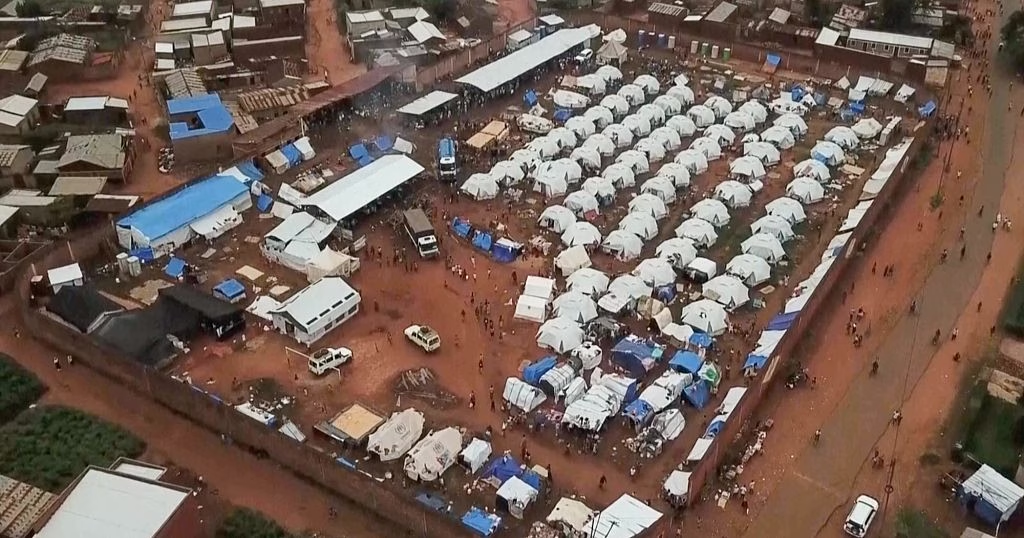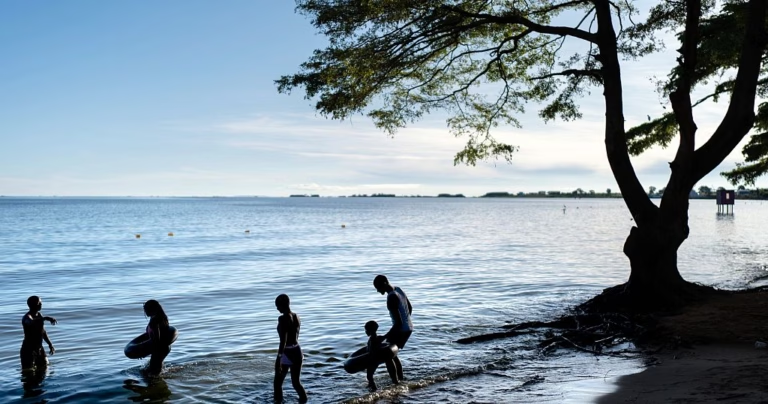
The sharp rise in refugees seeking aid has greatly strained WFP food assistance programs in Burundi.
Since January 2025, nearly 70,000 individuals – primarily women, children, and the elderly – have fled clashes in DRC to Burundi, with many undertaking perilous river crossings and long treks in pursuit of safety.
The influx shows no signs of abating, marking the largest movement into Burundi in decades. Furthermore, there’s an increase in cross-border movements into DRC’s neighboring countries, notably Rwanda, Uganda, and Tanzania, due to escalating conflicts in eastern DRC, threatening to worsen regional hunger.
“Refugees are arriving daily, some carrying hastily packed bags and suitcases, and others with just the clothes on their backs,” said Dragica Pajevic, WFP’s Deputy Regional Director for eastern Africa, currently aiding operations in Burundi.
“In a matter of weeks, the number of refugees has doubled, but funding hasn’t kept up. Our resources are stretched thin, and we’re being forced to adapt and cut rations to assist as many people as possible.”
Out of the 70,000 individuals who have arrived in Burundi from DRC recently, 60,000 have been registered for food aid, effectively doubling WFP’s total refugee count to 120,000 within a short span.
WFP is providing hot meals to the new Congolese refugees housed in temporary accommodations such as transit camps, schools, churches, and sports stadiums.
Existing refugees are receiving food rations, distributed both as food items and cash. However, due to limited resources, WFP was compelled in March to cut rations for existing refugees from 75 percent to 50 percent.
WFP currently has only enough funds to sustain operations for 120,000 refugees through June. Without additional financial support, WFP may have to completely halt food aid starting July – or possibly sooner, as refugee numbers continue to grow amidst intensifying conflicts in eastern DRC.
The organization urgently needs an additional US$19.8 million to provide adequate support to the most vulnerable until the year’s end.
Since January 2025, nearly 70,000 individuals – primarily women, children, and the elderly – have fled clashes in DRC to Burundi, with many undertaking perilous river crossings and long treks in pursuit of safety.
The influx shows no signs of abating, marking the largest movement into Burundi in decades. Furthermore, there’s an increase in cross-border movements into DRC’s neighboring countries, notably Rwanda, Uganda, and Tanzania, due to escalating conflicts in eastern DRC, threatening to worsen regional hunger.
“Refugees are arriving daily, some carrying hastily packed bags and suitcases, and others with just the clothes on their backs,” said Dragica Pajevic, WFP’s Deputy Regional Director for eastern Africa, currently aiding operations in Burundi.
“In a matter of weeks, the number of refugees has doubled, but funding hasn’t kept up. Our resources are stretched thin, and we’re being forced to adapt and cut rations to assist as many people as possible.”
Out of the 70,000 individuals who have arrived in Burundi from DRC recently, 60,000 have been registered for food aid, effectively doubling WFP’s total refugee count to 120,000 within a short span.
WFP is providing hot meals to the new Congolese refugees housed in temporary accommodations such as transit camps, schools, churches, and sports stadiums.
Existing refugees are receiving food rations, distributed both as food items and cash. However, due to limited resources, WFP was compelled in March to cut rations for existing refugees from 75 percent to 50 percent.
WFP currently has only enough funds to sustain operations for 120,000 refugees through June. Without additional financial support, WFP may have to completely halt food aid starting July – or possibly sooner, as refugee numbers continue to grow amidst intensifying conflicts in eastern DRC.
The organization urgently needs an additional US$19.8 million to provide adequate support to the most vulnerable until the year’s end.







